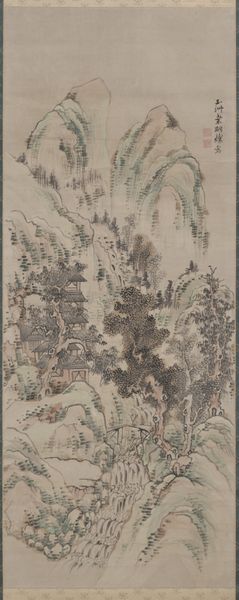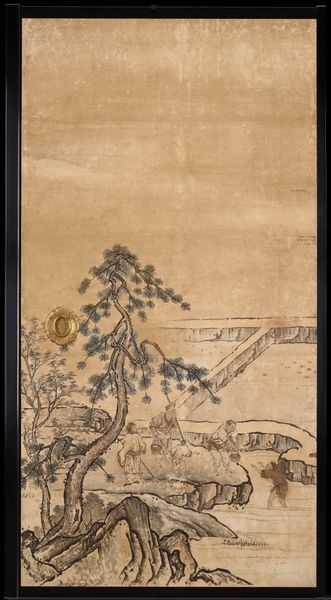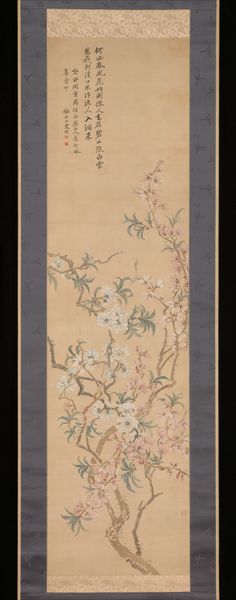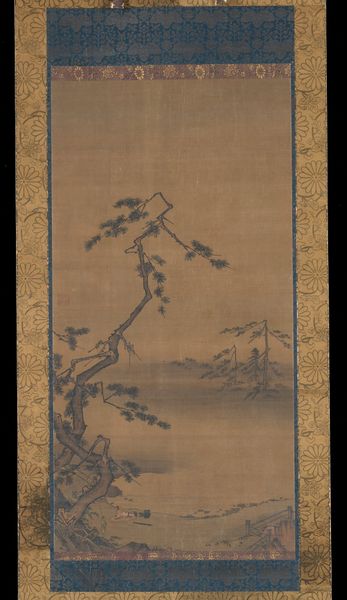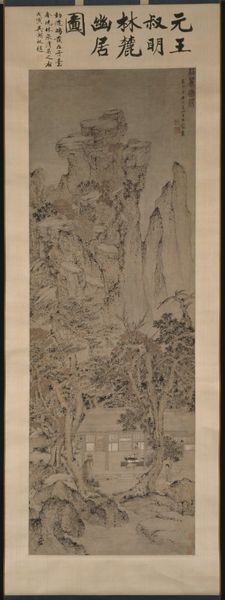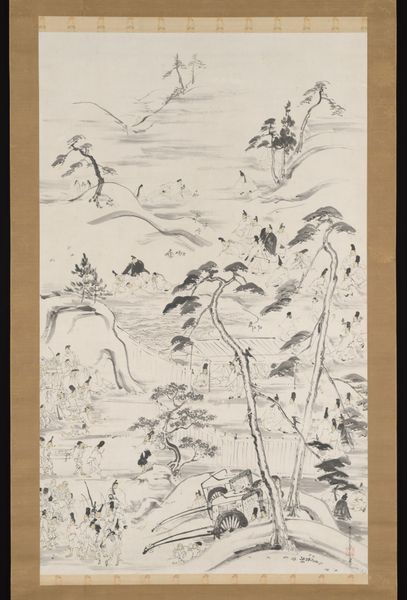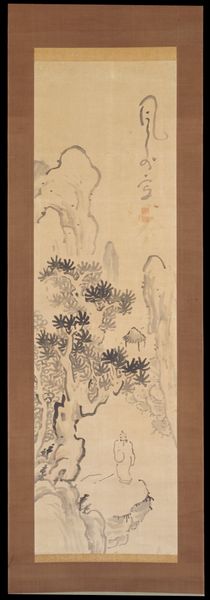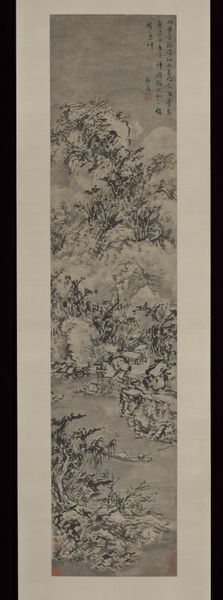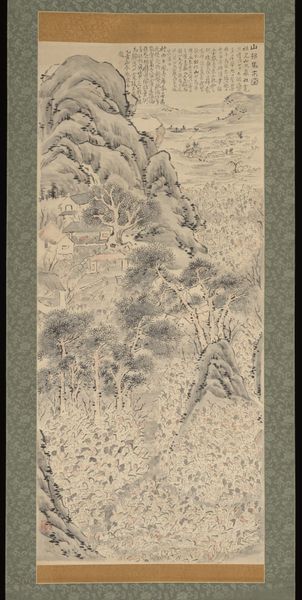
drawing, coloured-pencil, paper, ink
#
drawing
#
coloured-pencil
#
landscape
#
bird
#
flower
#
figuration
#
paper
#
ink
#
coloured pencil
#
underpainting
#
men
#
islamic-art
#
miniature
Dimensions: H. 7 1/2 in. (19.1 cm) W. 3 1/8 in. (7.9 cm)
Copyright: Public Domain
Editor: This is a page from "Anthology of Persian Poetry (Safina)" dating from between 1655 and 1710, by 'Abd al-'Azim al-Yahya. It’s rendered in ink, colored pencil, and drawing on paper. It gives such a delicate impression with its attenuated lines and pastel hues... What stands out to you about this piece? Curator: I’m immediately drawn to the materials themselves. Consider the paper: its likely handmade origin connects it directly to specific labor practices of the time. Look closely at the ink and the colored pencils, we must ask, where were these pigments sourced? Were they locally produced or imported? This gives us insights into trade routes and networks of material exchange. Editor: So, the materiality speaks to trade and labor, interesting! But how does the subject matter play into that? Curator: The scene depicted—a man amidst a flourishing natural world—hints at the patronage networks supporting the artist. Was this commission a display of wealth, or was it intended for broader circulation, indicating a developing art market? Even the very act of combining poetry with visual art in an anthology points to an evolving relationship between text, image, and consumption within courtly society. Editor: I see. So you’re saying even something that seems decorative is loaded with information about its production and social context. It's amazing to consider how the availability and trade of these specific materials impacted artistic creation. Curator: Precisely! It encourages us to reconsider these miniatures not merely as aesthetic objects, but as artifacts embedded within complex socio-economic systems. The materials truly tell the story. Editor: That perspective has completely reshaped how I see this piece. Thank you! Curator: My pleasure, thinking about art through its materiality always adds new dimensions.
Comments
No comments
Be the first to comment and join the conversation on the ultimate creative platform.


